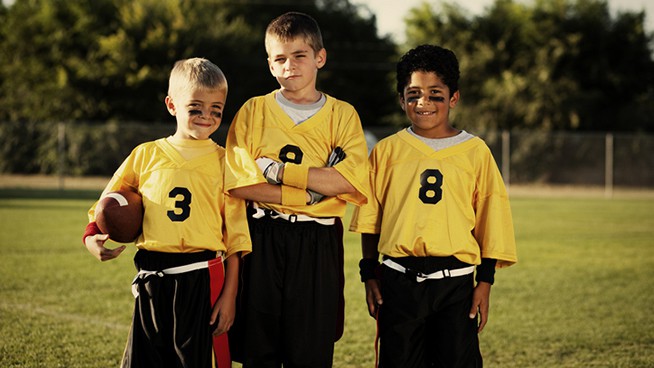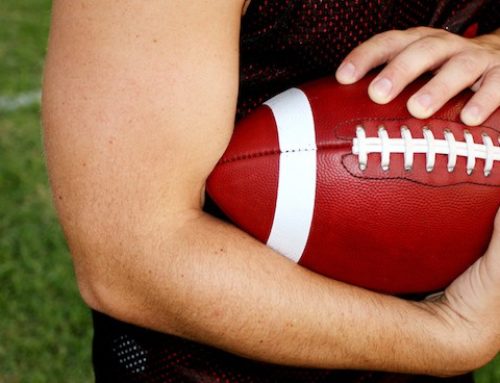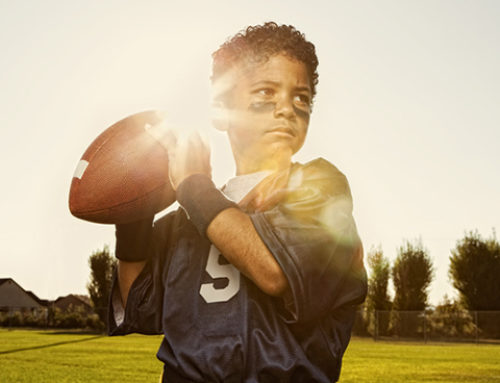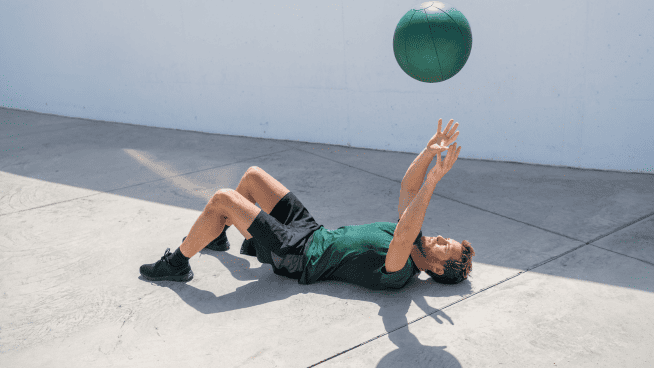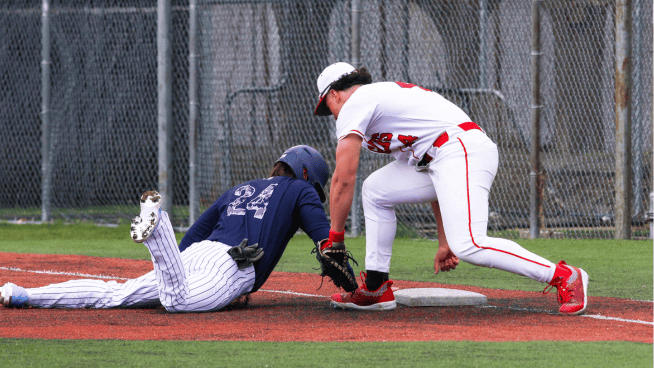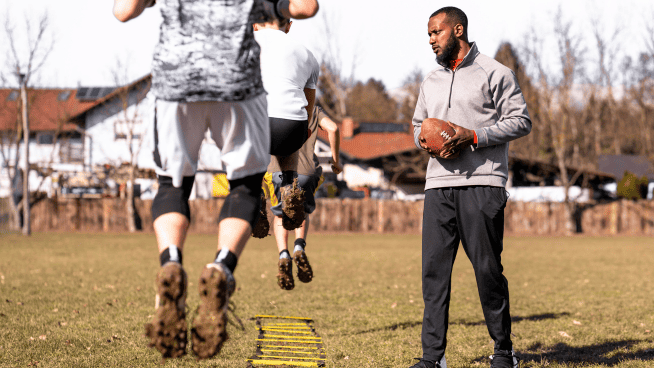Heading into the biggest football game of his life, Nick Foles had one goal: Think like a point guard.
“Going in this game, I sorta went back to when I played basketball. I didn’t worry about the score, I didn’t worry about the clock—I just played. I just played and I wasn’t going to worry about it. I was just going to play,” Foles said after the game.
And boy, did he play. Foles finished with 373 passing yards, 3 passing touchdowns and 1 receiving touchdown as the Philadelphia Eagles shocked the world with a victory over the New England Patriots in Super Bowl LII.
So, where did Foles develop this basketball mindset?
The 6-foot-6 quarterback was a two-sport star at Westlake High School (Austin, Texas), dominating both on the gridiron and on the hardwood. He started as a freshman on the varsity basketball team and led the district in rebounding as a sophomore. His talents attracted the interest of major programs like Georgetown and Gonzaga. Foles was known for wanting the rock in his hands during clutch situations.
“When I played basketball, the last-second shot, my team always wanted to get me the ball,” Foles told NBCSports in 2014. “I just liked having my hands on the ball when it was crunch time and I had to make a decision.”
Foles eventually focused solely on football during his senior year, in part because he’d already committed to Arizona State as a quarterback (he’d later switch his commitment to the University of Arizona). While basketball undoubtedly helped him increase his athleticism, it’s the mental aspect of the sport that sticks with him most today. To Foles, there’s no question his history as a floor general has helped him become a better quarterback.
“Anytime you’ve played different sports, for me it’s always been basketball, that’s an instinctual sport,” Foles told NBCSports prior to Super Bowl LII. “You’re dribbling the ball, you’re passing, you’re doing that stuff. I’m sure that’s helped me along the lines of my football instincts.”
Those instincts proved instrumental for Foles in a Philadelphia offense that relies heavily on run-pass options—plays where he must decide whether to hand the ball off or throw it after the snap is already in his hands. It’s just further proof that the benefits of being a multi-sport youth athlete can extend far beyond running faster or jumping higher.
Photo Credit: Kevin C. Cox/Getty Images
READ MORE:
RECOMMENDED FOR YOU
MOST POPULAR
Heading into the biggest football game of his life, Nick Foles had one goal: Think like a point guard.
“Going in this game, I sorta went back to when I played basketball. I didn’t worry about the score, I didn’t worry about the clock—I just played. I just played and I wasn’t going to worry about it. I was just going to play,” Foles said after the game.
And boy, did he play. Foles finished with 373 passing yards, 3 passing touchdowns and 1 receiving touchdown as the Philadelphia Eagles shocked the world with a victory over the New England Patriots in Super Bowl LII.
So, where did Foles develop this basketball mindset?
The 6-foot-6 quarterback was a two-sport star at Westlake High School (Austin, Texas), dominating both on the gridiron and on the hardwood. He started as a freshman on the varsity basketball team and led the district in rebounding as a sophomore. His talents attracted the interest of major programs like Georgetown and Gonzaga. Foles was known for wanting the rock in his hands during clutch situations.
“When I played basketball, the last-second shot, my team always wanted to get me the ball,” Foles told NBCSports in 2014. “I just liked having my hands on the ball when it was crunch time and I had to make a decision.”
Foles eventually focused solely on football during his senior year, in part because he’d already committed to Arizona State as a quarterback (he’d later switch his commitment to the University of Arizona). While basketball undoubtedly helped him increase his athleticism, it’s the mental aspect of the sport that sticks with him most today. To Foles, there’s no question his history as a floor general has helped him become a better quarterback.
“Anytime you’ve played different sports, for me it’s always been basketball, that’s an instinctual sport,” Foles told NBCSports prior to Super Bowl LII. “You’re dribbling the ball, you’re passing, you’re doing that stuff. I’m sure that’s helped me along the lines of my football instincts.”
Those instincts proved instrumental for Foles in a Philadelphia offense that relies heavily on run-pass options—plays where he must decide whether to hand the ball off or throw it after the snap is already in his hands. It’s just further proof that the benefits of being a multi-sport youth athlete can extend far beyond running faster or jumping higher.
Photo Credit: Kevin C. Cox/Getty Images
READ MORE:

